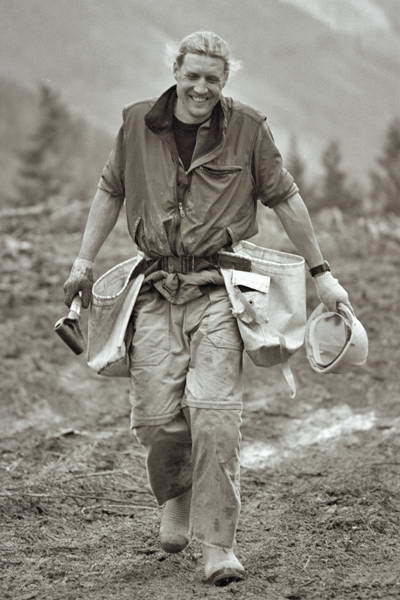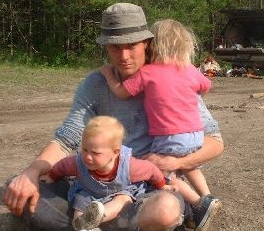About Planting: Coastal B.C.
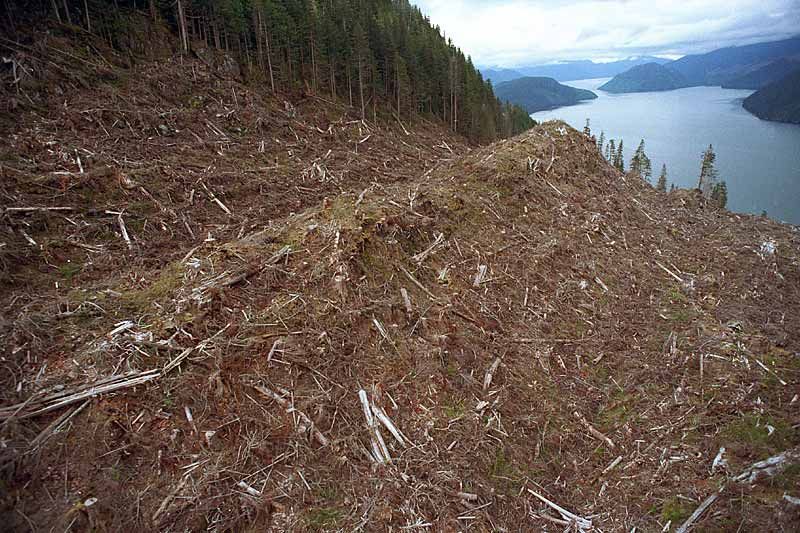
Authored by Jakob Zaiss.
Photos by Jaya Surjadinata.
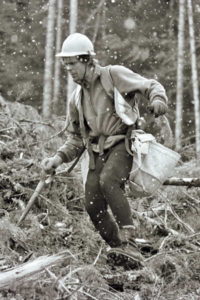 If you don’t mind getting wet, day after day. If you don’t mind continuous rain for days, weeks on end. If you don’t mind slash so high, sometimes you wonder if they took any wood off the block at all, and if you don’t mind being paid a little more for each tree, then planting on the coast is perfect for you.
If you don’t mind getting wet, day after day. If you don’t mind continuous rain for days, weeks on end. If you don’t mind slash so high, sometimes you wonder if they took any wood off the block at all, and if you don’t mind being paid a little more for each tree, then planting on the coast is perfect for you.
Where do you stay?
Accommodations on the coast are a lot like planting anywhere else. You usually stay in a planting camp, sometimes a logging camp, and sometimes in a motel, with the occasional stay in fishing lodges.
As usual, you are expected to bring all the living essentials and food is usually provided. Please, always check with your supervisor exactly what you’re responsible for before you head out for your first day.
A Walk in the Crazy Park
B.C. coastal planting is full of big, big slash (if you’ve never planted west of the Rockies, you can’t imagine it) and tonnes of rain. In early spring and early fall, when most planting happens out here, it rains A LOT. Throw in how steep most of these blocks are and; well, you’re not in Kansas any more.
Because the logging companies are moving farther up the valleys, drives are getting longer and there are more boat and helicopter accessible blocks.
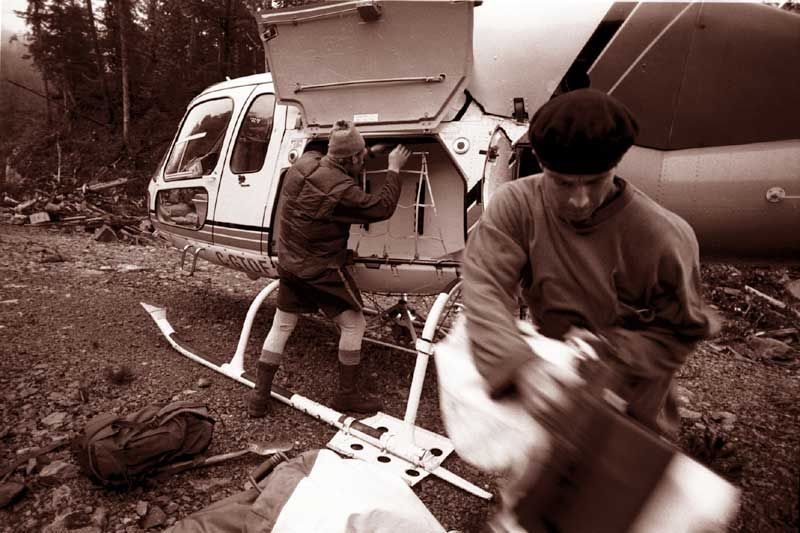 Good rain gear is very important and so are two or three changes of good clothes every day. Bugs aren’t nearly as big of a deal as other places in the province and country, though I have been mauled once by black flies. The blocks are steep and; did I mention, slashy.
Good rain gear is very important and so are two or three changes of good clothes every day. Bugs aren’t nearly as big of a deal as other places in the province and country, though I have been mauled once by black flies. The blocks are steep and; did I mention, slashy.
More than Just Planting
Things like coning, caging, and socking to prevent grazing and giving the trees a jump on other vegetation are becoming the norm with many forestry companies. Possibly the most controversial aspect of planting on the coast or Vancouver Island is the fertilizing. Small packets the size of tea bags are most often used but sometimes they’re not so small, and sometimes pellets of fertilizer are used. The planter is asked to open a small hole an inch uphill of the plug and put a bag or pellet in the hole making sure the hole is closed and the plug does not touch the fertilizer. This slows down production but the planter is “fairly” compensated with a couple pennies per unit.
Earning Potential
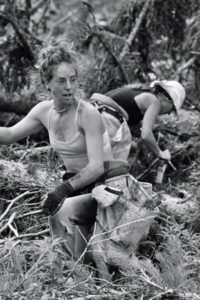 The best part about the coast is the money. You don’t have to whip yourself into a frenzy, banging in 3000 trees and hearing it from your foreman to make good money. The average price is in the low to mid twenties. Of course when you see the ground, you’ll understand why. The coastal planter isn’t in as much of a hurry (mostly because the ground often makes it impossible to hurry).
The best part about the coast is the money. You don’t have to whip yourself into a frenzy, banging in 3000 trees and hearing it from your foreman to make good money. The average price is in the low to mid twenties. Of course when you see the ground, you’ll understand why. The coastal planter isn’t in as much of a hurry (mostly because the ground often makes it impossible to hurry).
Depending on the planting company and what they bid, the average planter can expect to make $250 dollars or so a day. If you’re coming with a lot of experience and you’re used to making $350/day, well, that shouldn’t change much once you get used to the ground (a week or so). Someone starting on the coast should expect the same learning curve as if they were starting anywhere else.
Season Duration
There are crews that start as early as mid February. The summer months are slow but things pick up again in September. Usually by late October, the planters are off the hills and heading home.
If you can get in there with a few companies and really want the work, I imagine you could find more than 75 days of work in a year on the coast.
As is the norm with planting, it helps to know somebody. If you have experience without a bad reputation that precedes you, well, even better. A good thing to do is get in touch with as many supervisors as you can and get them to take your number down. Every contract seems to go through a time when they suddenly need more planters. I know a few people who are working with my crew who sacrificed their time to come up and help finish off a contract before a deadline.
The best time to call is January. The new year is when planting companies start looking ahead, that means new recruits.
The Secret
The most important thing to remember when struggling through your first season out here is that it gets easier and easier to make more and more money. Coastal planting is great because making good money is based on thinking about your spots, not necessarily on how athletic you are.
Perhaps most depressing about work out here is the devastation clearcuts have rendered on the old growth forests. Logging companies are getting better at some things, but there are still monster logging trucks hauling out one log at a time down the mountains – as in one 15 foot in diameter log at a time.
I believe that coastal planting offers more in terms of planting than in any other part of the country. There is more opportunity to completely lose your mind, but also to make money without the mad frenzy you’ll find elsewhere. You get used to the rain and the slash; you really do.
I had it pretty easy. I grew up next to two of the most successful treeplanting supervisors in treeplanting’s brief history. I didn’t even really know what it was and suddenly I was doing it. Of course I have my horror stories, what planter doesn’t, but my rise to happiness – because lets face it, that’s what it’s all about, trying to find a way to enjoy this hellish lifestyle – was a smooth one. In fact it still is smooth. I still work as a planter with the same supervisors. Happily, I might add.
I work with a crew that plants as a crew, or line plants, that is, there are usually six people at a time working on one line. Probably sounds crazy to someone who spends their springs and summers planting alone or with one other person but it really works for our crew. I’ve done it almost all my career and I can’t imagine doing it any other way. I’m pretty sure that I wouldn’t still be planting if it weren’t for this style of working a piece. A couple decades ago it was the norm, now it’s the exception (although I understand Brinkman is trying to change back to the old way).
Planting is where I met my wife not to mention some of my best friends. I won’t be a planter forever, but I’m very satisfied with how I’ve spent the last nine years.
~ Jakob Zaiss

